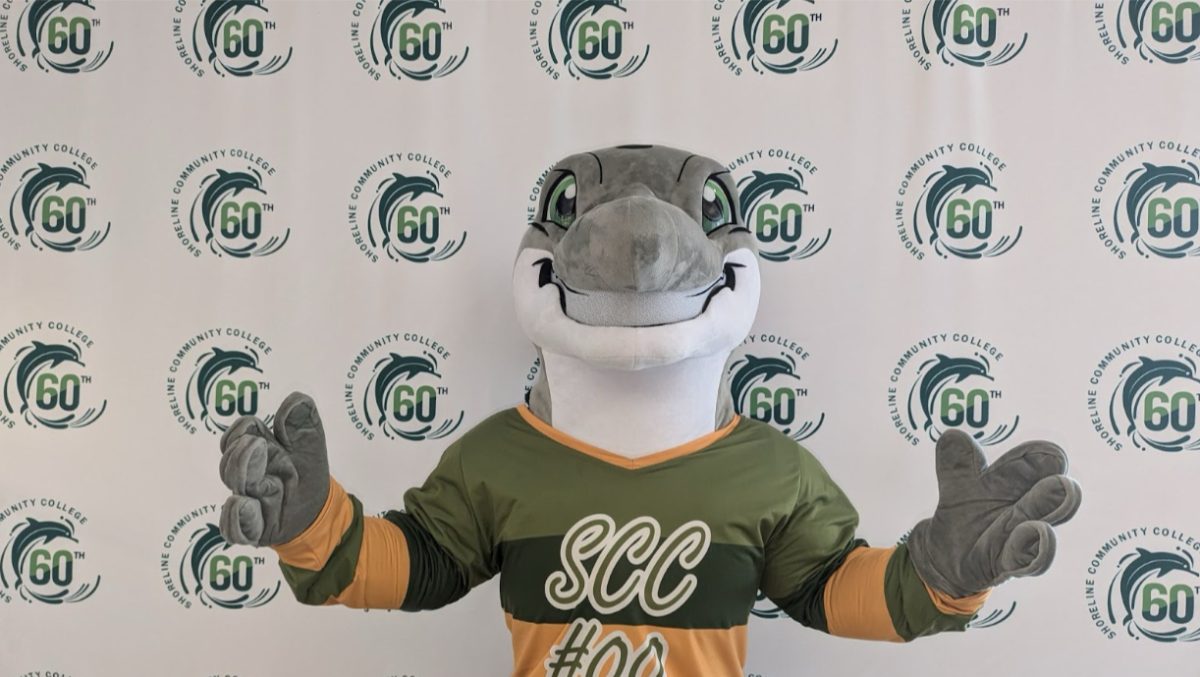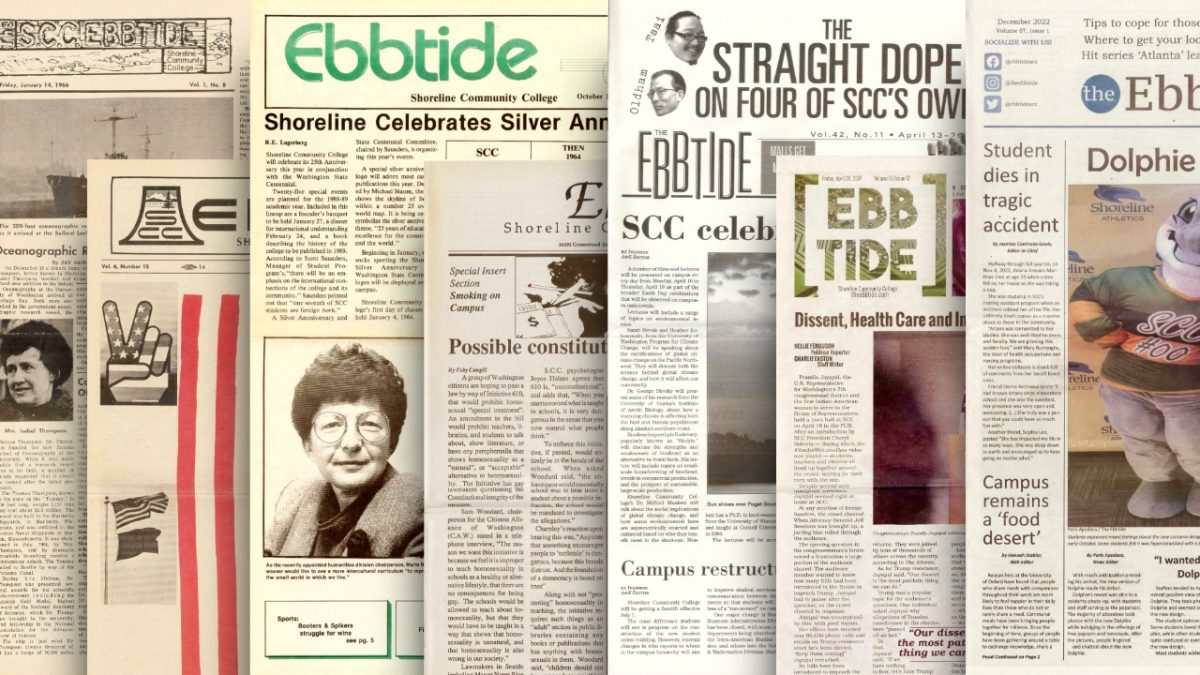FANTASTIC FRIENDS AND WHERE TO FIND THEM
Spoiler Warning: This article talks about the Harry Potter book and film series and talks about what happens throughout.
The magical realm of Harry Potter is one defined by relationships: more specifically, Harry’s relationships with those who surround him.
Indeed, a vast cast of characters populate that world and help Harry go from a shy and ignorant pipsqueak to the top of a wizarding world which goes back centuries — all in a mere seven years.
For Harry, like for most successful young wizards, his relationships are predominantly positive. Author J.K. Rowling is telling us something about the relationships we need for our lives to thrive.
Here is a list of the most vital people in Harry’s life and how they affected him. Accio information.
Hagrid
Sometimes lacking awareness, always possessing a giant heart, Hagrid is Harry’s first father figure and saves him from his bedroom under the Dursley’s staircase by introducing him to the concept of Hogwarts.
There, he relates to Harry as an outcast; this makes him accepting of all different types of people, though Hagrid does prefer four legs to two.
The Lesson:
Hagrid is defined by his unassailable loyalty. That loyalty’s main recipients are Dumbledore (for getting him a job) and Harry (whom he rescued as a helpless infant and then befriended when Harry turned 11).
Warm and approachable, Hagrid is the cool teacher you can go with your problems or have lunch with anytime. He always believes that Harry will succeed. Sometimes intellectual aptitude isn’t his strong suit, but he surprises with deep wisdom in rough times.
Quote or Moment:
“What’s comin’ will come, an’ we’ll meet it when it does.” — the end of book four
Ron
Ron is Harry’s best mate. He’s also good at chess, but mostly he provides is a sense of brotherhood to Harry. He navigates the ups and downs of being a brother and son all while finding his place in the pecking order.
For the first time, Harry sees a successful version of a well-adjusted kid.
The Lesson:
Ron models behaviors for Harry about how to act, not for school per se (as Harry has been to those before), but in the face of all the actual hocus pocus in this new world.
This is so effortless because Ron is eminently relatable.
Ron offers Harry his first glimpse into what it’s like to be a wizarding teenager. He talks about broomsticks like modern “dudes” talk about cars. He cheers for the local sports team. He likes his sweets.
Most of all, he has a sense of humor about it. Who couldn’t like this guy?
Quote or Moment:
“That’s chess! You’ve got to make some sacrifices!” — book one
Hermione
Resourceful and brilliant, Hermione is the only one who’s actually read “Hogwarts: A History.” She believes that you can always research yourself out of a pinch and that the library is your friend. For her, “reason” should not be undervalued regardless of how dire a situation may seem.
The Lesson:
Hermione serves to balance out the testosterone of the triad of her, Harry and Ron.
Allegiances don’t mean more than facts. She calls it as she sees it, and just like Neville, she stands up to her friends when she believes them to be at fault.
Quote or Moment:
Harry was about to fly over the moon with joy at the prospect of riding his new Firebolt in book three when Hermione insisted that he tell McGonagall and promptly did so herself once he refused.
Who would send Harry the Rolls-Royce of brooms with good intentions and no note when he was being chased by a known murderer? She guessed it was Sirius, and she was right again.
Draco Malfoy
Malfoy (only his mother calls him Draco) gives Harry a template of what he doesn’t want to become.
Malfoy was the first peer that Harry met after learning he was a wizard. He is stuck up, and comes from an old school pure-blood family and likes to boast about it. He dismisses Muggles (non-magic folk) and, in some cases, actively engages in bigotry toward them.
He also deals with friendship much differently than Harry, employing sycophants in lieu of true friends.
The Lesson:
Malfoy serves as an example that even in this new, Dursley-free world that bullies still exist. He helps Harry learn the all-important lesson that you don’t have to be friends with everyone, and once you choose your friends, you generally spend a lot of time talking about people who didn’t make the cut.
In fact, Harry and Ron spend an inordinate amount of their time badmouthing Malfoy. They fully relish in discussing his potential misfortune and inventing ways for him to be expelled; it’s kind of an obsession.
Again, bad guys don’t have to be bad forever; Malfoy gets portrayed as sympathetic in the long run and is eventually redeemed. But Harry needed someone not so evil as Voldemort, but more ill-intentioned than a Blast-Ended Skrewt to butt heads with throughout the series.
Quote or Moment:
“You’ll soon find out some wizarding families are much better than others, Potter. You don’t want to go making friends with the wrong sort. I can help you there.” — book one
Mr. and Mrs. Weasley
Mrs. Weasley’s presence at King’s Cross station in book one is a perfect counterpoint to both the Malfoys’ anti-Muggle and Muggle-born sentiments (Rowling’s version of racism) and the Dursleys’ anti-Harry ones.
Mrs. Weasley makes sandwiches for all her kids, provides stern lecturing for those who need it (the twins want to send Ginny a toilet seat) and genuinely misses them when they go off to school. The Dursleys sent Harry a toothpick and a single tissue — and that was for two different birthdays.
And when Mr. Weasley isn’t tinkering around with Muggle technology, he is usually talking to his family about work or quidditch. Not quite a workaholic, we come to learn that Mr. Weasley’s version of a government job doesn’t give his family the income they could have elsewhere, but it does fulfill a kind of public service.
He does it to help people, especially to help Muggles who have been tricked by wizards. This noble endeavor isn’t lost on his family and they both look up to him and follow his tolerant lead, which is largely why they become Harry’s surrogate family of choice.
The Lesson:
The two together utilize the common parenting style known as good cop-bad cop.
They are the best example of true family kinship, but there is the issue of how Mrs. Weasley deals with the twins. Her rigid style gets in the way of her acceptance that the twins aren’t meant to follow in their father’s footsteps and work for the Ministry.
But this doesn’t get in the way of the Weasleys taking in Harry when he shows up on their doorstep in Mr. Weasley’s Ford Anglia in book two. From then on, they treat Harry like a good family would bringing in a stray: as one of their own.
Quote or Moment:
“… and speaking as someone who has got Harry’s best interests at heart…” — Mrs. Weasley to Sirius Black, book five
“He’s not your son.” — Sirius to Mrs. Weasley
“He’s as good as!” — Mrs. Weasley to Sirius
Sirius Black
Sirius is Harry’s godfather, and an escaped convict. The best moment of the series for Harry’s potential is those 15 minutes or so in the final day of the book three when Harry thought he might live with a pardoned Sirius. Unfortunately, that was not to be.
The Lesson:
Sirius provides a type of fatherly figure for Harry that is really more of an older brother. He only gets a chance to show it during two of the seven books. He is protective, but ultimately wishes that Harry would engage in schoolboy shenanigans just like his father.
He wants Harry to be better, but more importantly he wants Harry to be rebellious and fill a void in his heart that only the son of a dead best friend could fill. He also recognizes that he is Harry’s best shot at getting to know his dad.
Quote or Moment:
When Sirius comes back to the caves around Hogsmeade in book four, Harry, Ron and Hermione come and visit him bringing scraps of food along the way. They discuss the shifty Professor Karkaroff and the dangers that Harry is facing in the Triwizard Tournament, and Ron and Hermione bicker back and forth.
Sirius is new to being a parental figure, but he already gets it spot on. He knows that the best way to Harry’s trust is to trust the people whom Harry trusts. And, by hearing out both Ron and Hermione and then complimenting each of their stances, Sirius respects them, too.
He shows here that patience can go a long way toward enchanting a teenager’s heart.
Tom Riddle aka Voldemort
Now as it turns out, Rowling is avidly against orphanages and even founded a non-profit dedicated to return orphaned children to traditional homes. It makes sense, therefore, that her antagonist grows up in one and becomes a classic psychopath, displaying tendencies such as pyromania and animal cruelty.
Unfortunately, He Who Must Not Be Named proves to be one of the least fleshed out characters in the series. He is mostly just bad and power-hungry, and wants to kill people and take over; he is basically a terrorist, only a pathological one like you’d get in a monetarily expensive yet story-wise vapid TV show or blockbuster. Voldemort doesn’t have any ideals. If only arch-enemies in the real world were so obviously evil…
Let’s face it, he simply serves as an adversary for Harry to overcome.
The Lesson:
Voldemort is an example of what Harry could have become. They share a similar upbringing, both being half-blood orphans. Neither knew they were wizards until their eleventh birthdays, but always felt different from those around them.
But parallel circumstances don’t yield two identical wizards. “It is our choices, Harry, that show what we truly are, far more than our abilities,” Dumbledore said in book two. Both Harry and Voldemort had to make choices about their moral fiber, friendships, notoriety and lust for power before ultimately coming into their own.
Quote or Moment:
“There is no good and evil. There is only power, and those too weak to seek it.” — book one
Dumbledore
At last we get to Harry’s true father figure and mentor: Albus Percival Wulfric Brian Dumbledore. As a guide and teacher, he is phenomenal, caring and takes a personal interest in his students (or at least, Harry) on their paths to magical understanding. He is someone with the wisdom of Solomon and the whimsy of a small child.
Dumbledore is one of a handful of seriously powerful wizards, but he recognizes that he cannot control everything. He imbues prowess in a non-threatening way. He is not hungry or thirsty for it: he is satiatiated.
The Lesson:
Dumbledore is a man of nuance: he has self-confidence that he can hold his own but has the wisdom to understand his capabilities and when to employ them.
He provides a sense of security for both Harry and the wizarding community. As the only one both Voldemort and Grindelwald were ever matched by, he serves as a kind of balancing act for the evil wizard de jour and the wizarding world. He always knows what to do in crisis.
On occasion, Harry goes through phases where he is frustrated by Dumbledore; even the best wizard can fail to articulate something perfectly.
And, his best qualities are his quirks.
Quote or Moment:
Dumbledore accepts that even a wizard of his caliber can’t control everything in life — such as the draw of your Bertie Bott’s Every-Flavour Bean.
“Alas, ear wax.” — book one






